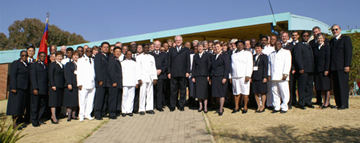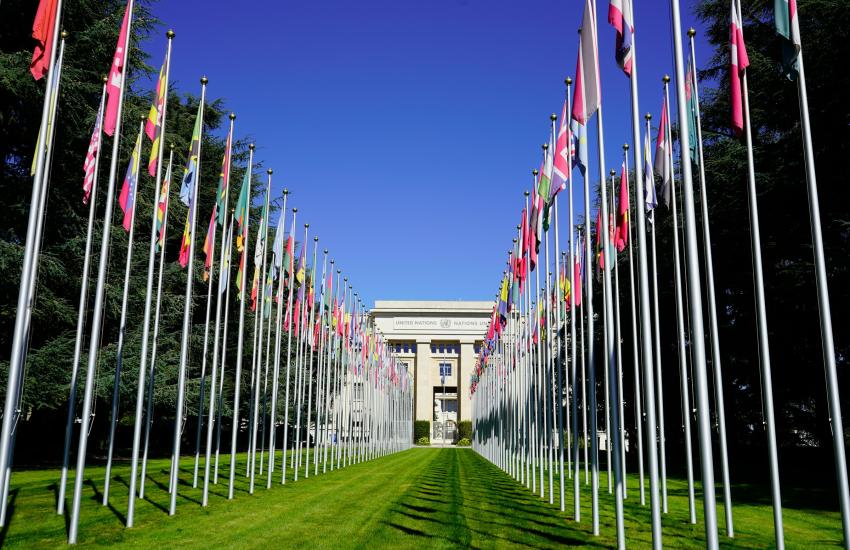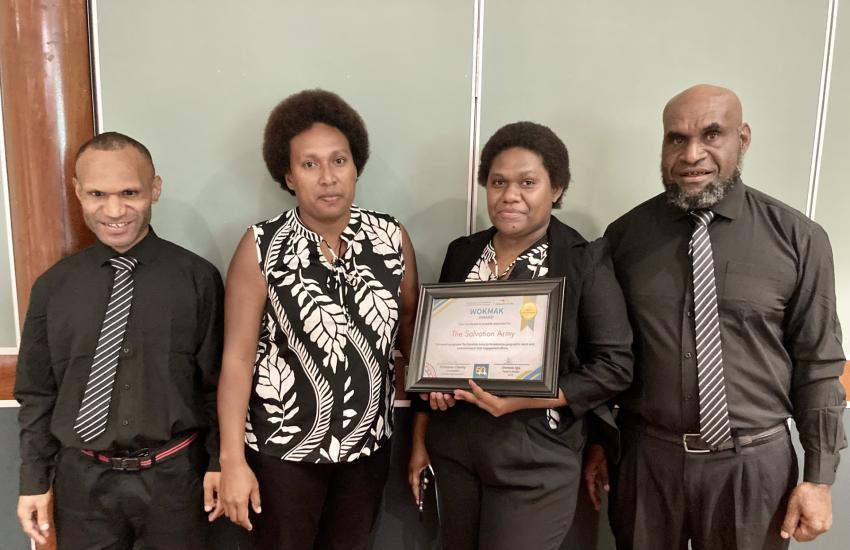
FIFTY-SEVEN participants from 37 Salvation Army territories/commands met in August 2006 at the Good News Convention Centre just outside Johannesburg, South Africa, for the Army's second International Theology and Ethics Symposium. The first symposium was held in Winnipeg, Canada, in 2001 under the theme ‘Salvationist Theology and Ethics for a New Millennium’, focusing on ways in which the Trinitarian gospel impacts the Church and contemporary society. The 2006 symposium, 'People of God – Salvationist Ecclesiology' looked at what it means to be disciples of Christ and how Salvationists can be servant-members of his Church through The Salvation Army. Delegates were nominated by their territorial/command leaders and chosen as contributors by International Headquarters on the recommendations of the symposium’s sponsor, the International Doctrine Council.
The keynote address was delivered by Dr Robert Lang’at, an African Wesleyan theologian who has served as Head of the Department of Education and Theology at Kabarak University in Kenya where he now holds the position of Provost. His address, ‘The Salvation Army as a Christian church with a Social Conscience’, concluded by indicating that The Salvation Army has established a viable self-understanding as a church that balances its ‘church institution’ form with its ‘missionary band’ existence. Its church foundation in the Wesleyan/holiness movement, he suggested, has provided it with a theological rationale for its social agenda.
Doctor Lang'at affirmed that The Salvation Army was ahead of its time in its approach to African social issues but he suggested that the Army needs to re-engage and clarify its place within the universal Christian Church. What it means to be a Salvation Army church in the African context still needs clarification, he said, explaining that its social programmes need to be redemptive and to be continually informed by theological roots and theological reflection, particularly in the third world.
Delegates met to consider ways in which The Salvation Army might develop in its understanding of itself as a ‘mission-based’ church in the New Testament sense of what it means to be ecclesia, the Greek word most often translated as ‘church’ in English versions of the New Testament. Selected delegates therefore prepared and read papers on the theme ‘Salvationist Ecclesiology’. The theme was developed through the week. On the first day, the delegates considered Salvation Army Church Identity (‘Past, Present and the Way Forward’, ‘Being an Evangelical Part of the Universal Body of Christ in a Pluralistic Society’, and ‘Financial Support Implications Related to Church Identity’). On the second day, the theme’s emphasis had to do with Salvation Army Church Mission, Ministry and Leadership (‘Holistic Gospel Mission and Ministry’, ‘Women and Men in Ministry, Leadership and Governance’, and ‘Foundational Discipleship, Education and Training’). The third day of papers looked at Salvation Army Church Worship (‘Salvationist Expressions of Worship’, ‘Ceremonies and Symbols in Worship’, and ‘Life is Worship – Worship is Life’). Following the presentation of each paper, a selected delegate gave a pre-written response. There then followed an open-forum discussion of each paper.
Delegates led morning and evening prayers each day, with evening prayers from Korean, Indian and Latin American worship perspectives. The General and Commissioner Clifton provided a special Sunday morning worship service, supported by Southern Africa territorial leaders Commissioners Trevor (Territorial Commander) and Memory Tuck and Lieut-Colonels Hezekiel (Chief Secretary) and Mirriam Mavundla, along with the General’s private secretary, Major Richard Gaudion, Colonels Earl and Benita Robinson (Chair and Secretary of the International Doctrine Council), the Soweto Songsters and a testimony by one of the African delegates. Commissioner Clifton spoke in the worship service and brought to the attention of the delegates the General’s call for prayer for the Middle East.
General Clifton’s Bible message highlighted ways in which the Christian mind is a Christlike mind.
On the welcome night of the symposium, before introducing the keynote speaker, the General had brought opening greetings and remarks in which he expressed his hope that the outcomes of the symposium would benefit Salvationists everywhere. To that end, on the final day of the symposium participants met in small groups to define affirmations and visions that resulted in recommendations to be submitted by the Doctrine Council to the General for possible implementation for the good of the Army as a whole and the Kingdom of God.
In his concluding remarks in his symposium paper on Sunday evening, the General spoke on the overall theme of the symposium, ‘People of God – Salvationist Ecclesiology’. He said that if it is a settled matter that the Army is a church, the question to engage us all is: ‘What kind of church?’ He added, ‘It is precisely here, at this point and in this matter that my hope resides in this symposium being of lasting help to the wider Army. What kind of church are we called under God to be? This is the ecclesiological question for our times. The answers for our generation will appear as part of a constantly creative continuum coming from the mind of God, who does not conduct his dealings with his people in an arbitrary fashion. By this we know that God will build creatively upon the traditions he has given us.’
Before bringing the symposium to an end the General expressed appreciation to Commissioners Trevor and Memory Tuck and the Southern Africa Territory for wonderful hospitality. Assistance provided by the host territory to the doctrine council and symposium participants in many practical ways was invaluable to what the General expressed as his hope for the symposium: ‘That its fruits can eventually become evident and that the wider Army will have cause to be grateful’.





